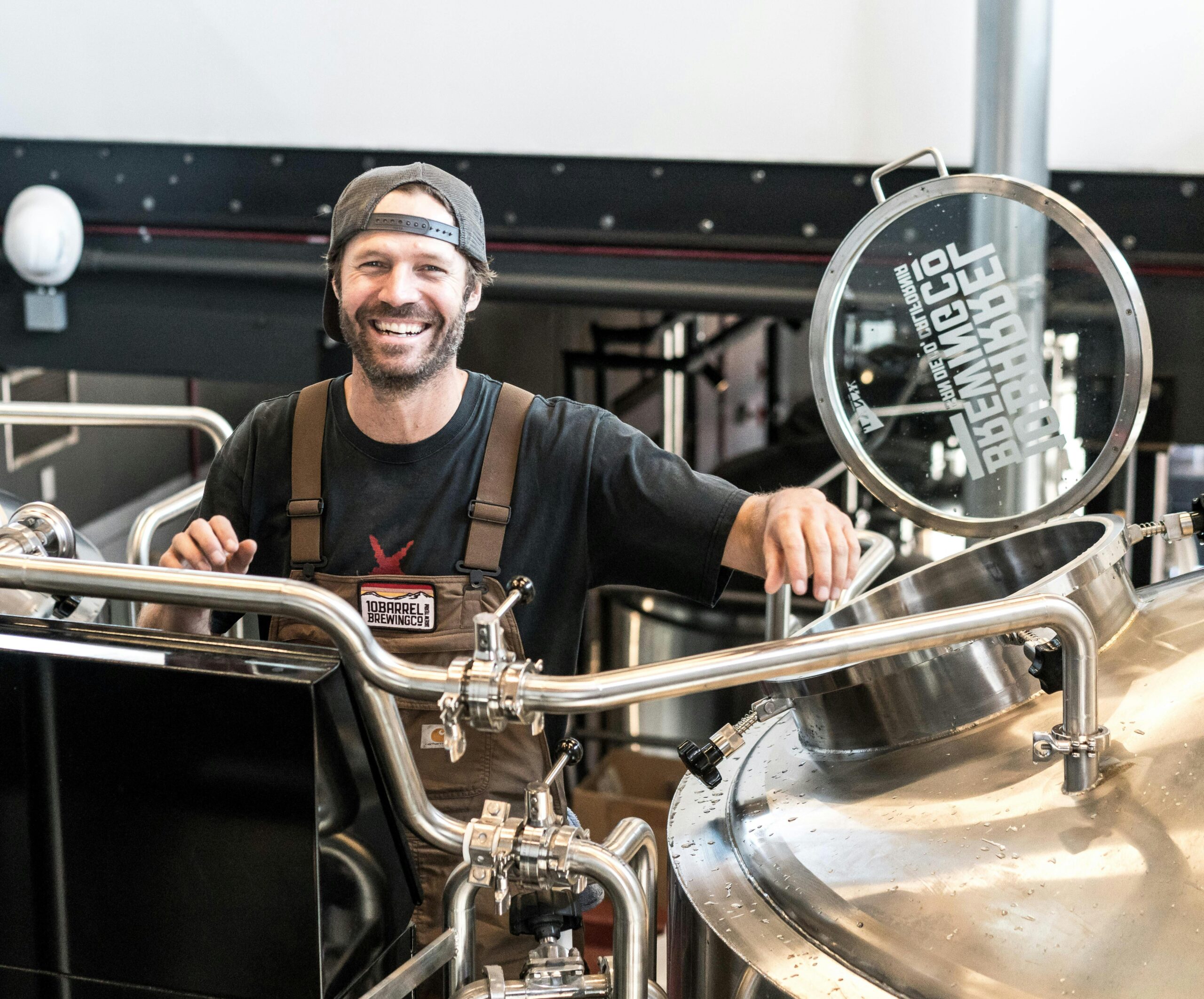Your accountant sends you financials 45 days after the month-end.
You open the PDF, scan the P&L, see whether you made or lost money, then file it away.
Sound familiar?
Here’s the problem: by the time you see those numbers, you’ve already made six weeks of decisions without them. That’s not doing anyone any good.
Real CAS accounting for restaurants doesn’t just document what happened. It tells you what’s happening right now and what you should do about it. It’s the difference between someone who records your history and someone who helps you write your future.
If your accountant isn’t actively helping you run a more profitable restaurant, you don’t have a financial partner—you have an expensive bookkeeper.
Key Takeaways
- CAS accounting goes beyond traditional bookkeeping by providing real-time financial visibility, proactive strategic planning, and forward-focused guidance that helps you make better decisions before problems become crises.
- Restaurant-specific expertise is non-negotiable when choosing a CAS partner—generalist accountants miss industry-specific tax credits, misunderstand operational metrics, and can’t provide the strategic context you need to optimize profitability.
- Real CAS engagement includes technology integration, menu engineering, pricing strategy, and growth readiness—transforming your accounting from a compliance requirement into a competitive advantage that positions you for expansion or investment.
- Evaluate potential CAS partners on five criteria: restaurant-specific expertise, technology proficiency, communication style and availability, strategic thinking capability, and transparent pricing that aligns with the value delivered.
What Is CAS Accounting for Restaurants?
CAS stands for Client Advisory Services, but in the restaurant world, it should stand for “Can Actually Save your business.” Traditional accounting firms close your books, file your taxes, and send you reports. CAS accounting firms do all that, but they also function as your outsourced CFO, your strategic advisor, and your financial translator. They turn data into decisions.
According to the National Restaurant Association, food and labor costs for restaurants have increased 35% in the last five years. When your two biggest expense categories are climbing and your margins are already thin—most restaurants operate on just a 3-5% pre-tax margin—you can’t afford to wait six weeks for someone to tell you about a problem you should have fixed five weeks ago.
CAS accounting gives you real-time visibility into these cost pressures so you can respond immediately—adjusting menu prices, tweaking labor schedules, or renegotiating with vendors before a bad month becomes a bad quarter.
CAS Accounting vs Traditional Accounting
Here’s what separates CAS from traditional accounting: frequency, relevance, and forward focus. Traditional accountants work on a monthly or quarterly close cycle.
CAS accountants work on your operating rhythm—weekly check-ins, real-time dashboards, proactive alerts when something’s off.
Traditional accountants tell you your prime cost percentage. CAS accountants tell you your prime cost is trending up, explain exactly why, and model out three scenarios to fix it.
Traditional accountants are historians. CAS accountants are navigators.
And when we’re talking about CAS accounting for restaurants specifically, we’re talking about people who understand the difference between theoretical gross profit and actual plate cost after waste. Who knows that a 3% price increase sounds small until you factor in local competition and customer price sensitivity. Who can tell you whether your ghost kitchen concept will actually pencil out before you sign the lease. That specificity matters, and it’s exactly what generalist accountants can’t provide.
The Generalist vs. Specialist Problem
Let’s be direct: your family accountant who does taxes for dentists and law firms doesn’t understand your business. They might be perfectly competent at what they do, but restaurants operate on entirely different math.
A generalist accountant sees “cost of goods sold” as a single line item. A restaurant-specialized CAS accountant sees it as the nexus of purchasing strategy, vendor relationships, menu engineering, portion control, theft prevention, and waste management. Those are six different levers you can pull to improve profitability, but only if your accountant knows they exist.
The gap shows up everywhere, especially in different restaurant credits and deductions.
- Generalists don’t know about the FICA Tip Credit, which can save you thousands on payroll taxes.
- They miss the nuances of the Work Opportunity Tax Credit for restaurant hiring.
- They can’t advise on the new depreciation rules under the One Big Beautiful Bill Act because they’re not tracking restaurant-specific implications.
They look at your P&L and say “labor’s high” without understanding that 30% labor cost is normal for full-service but terrible for fast-casual.
The difference isn’t just expertise—it’s engagement. When you work with The Restaurant CPAs’ network of specialized accounting firms, you’re not getting someone who tolerates your industry. You’re getting someone who chose it, who works exclusively or primarily with restaurants, and who has seen your exact problems solved a hundred times before. They speak your language. They understand your calendar. They know that January’s going to be slow and December’s going to be chaos, and they plan around your reality instead of treating you like every other client.
Benefits of CAS Accounting for Restaurants
The benefits of CAS accounting for restaurants go far beyond having someone answer your finance questions.
Real-time Financial Visibility
First, you get real-time financial visibility. Not 45-day-old reports—actual current data that tells you what’s happening this week.
Your CAS accountant connects directly to your POS system, your payroll platform, your vendor invoices, and your bank accounts. They see the same numbers you do, often before you look at them. That means when your food cost percentage jumps from 32% to 37% in a single week, they’re calling you before you’ve even noticed.
They’re already pulling transaction data to figure out if it’s a vendor price increase, a portioning problem, or a theft issue. You’re not discovering problems in hindsight—you’re catching them in real time.
Proactive Planning
According to an industry report, 39% of restaurant operators said their business was not profitable in 2024, and 59% say higher operating costs will have the greatest impact on their 2025 business strategy.
Your CAS accountant isn’t waiting for you to ask questions—they’re bringing you answers. They’re running scenarios:
- “If we raise prices 4% and lose 8% of transactions, here’s the net impact on profit.”
- “If we cut labor by optimizing scheduling, here’s what we save without compromising service.”
They’re building 13-week cash flow forecasts so you know exactly when you can afford to replace that aging freezer or whether you need to tap your credit line before the slow season hits.
Strong Technology Integration
Most restaurant owners are drowning in software—POS, payroll, scheduling, inventory, online ordering, reservations—but none of it talks to each other. A specialized CAS accountant knows the restaurant tech stack inside and out. They help you choose systems that integrate, they make sure data flows correctly between platforms, and they build dashboards that consolidate everything into a single view. You stop logging into six different systems to answer one question about last week’s performance.
Real Restaurant Profitability Optimization
This is where restaurant-specific expertise becomes invaluable.
Your CAS accountant analyzes your menu mix, identifies your stars and dogs, calculates true plate costs including waste and labor, and models out pricing changes before you implement them.
They know that raising the price of your highest-volume item by 50 cents might generate an extra $2,400 monthly, but they also know your customers might not tolerate it. They help you find the sweet spot between profitability and market positioning.
Growth Readiness
When you’re ready to open a second location, bring on an investor, or sell the business, your CAS accountant has already built the infrastructure. Your books are clean, your reporting is sophisticated, your financial projections are credible. You’re not scrambling to create three years of organized financials when opportunity knocks—you’re ready to move.
What to Look for in a CAS Accounting Partner
Not all CAS providers are created equal, and in the restaurant world, the difference between a great partner and a mediocre one is massive.
Restaurant-specific Expertise
This isn’t negotiable. Your CAS accountant should work primarily or exclusively with restaurants. They should understand restaurant accounting nuances like:
- Tip reporting
- Inventory valuation methods
- Mixed-use space calculations
- Franchise royalty structures
- Liquor licensing implications
When you mention prime cost, they shouldn’t need you to define it. When you talk about covers per labor hour, they should already know your target. Ask how many restaurant clients they have, what types of concepts, and what size ranges. If they can’t give you specific examples of restaurant problems they’ve solved, keep looking.
Technology Proficiency
Your CAS accountant should be fluent in modern restaurant technology. They should know the major POS systems—Toast, Square, Clover, Lightspeed—and how to extract data from them.
They should understand inventory management platforms, labor scheduling tools, and online ordering integrations.
More importantly, they should have opinions about which systems work well together and which create headaches. If they’re still asking you to email Excel spreadsheets instead of pulling data directly from your systems, they’re not providing real CAS services.
Strong Communication
Evaluate their communication style and availability. CAS isn’t a once-a-quarter relationship—it’s an ongoing partnership. You should have regular scheduled calls, but you should also be able to reach them when urgent questions arise. Ask about their response time expectations. Find out if they work with other restaurants in your area who might create conflicts during tax season or year-end close.
Make sure their communication style matches yours—some people want detailed explanations, others want bottom-line recommendations. Neither is wrong, but misalignment creates friction.
Critical Thinking Aptitude
This separates transactional accountants from true advisors.
During your initial conversations, present a real business scenario and see how they respond. “We’re thinking about adding brunch service,” or “We’re considering a ghost kitchen concept.”
A good CAS accountant will immediately start asking probing questions: What’s your current weekend utilization? What additional equipment would you need? How would this affect your labor model?
They’re thinking through the financial implications before you’ve finished describing the idea. If they just nod and say “that sounds great,” they’re not strategic partners.
Pricing Structure
Understand their pricing structure and make sure it aligns with value. CAS services cost more than traditional bookkeeping, and they should. You’re paying for expertise, availability, and strategic guidance.
Pricing models vary—some charge monthly retainers, others bill hourly, some use tiered packages based on revenue or complexity. What matters is transparency and alignment with the value delivered. If you’re getting weekly check-ins, real-time dashboards, and proactive recommendations, premium pricing makes sense. If you’re getting glorified bookkeeping with a fancier title, it doesn’t.
Check References
Ask potential CAS partners for references from current restaurant clients. Talk to those clients about tangible outcomes.
- Did the accountant help them identify cost savings?
- Did they successfully support a financing round or acquisition?
- Did they catch problems before they became crises?
The Restaurant CPAs pre-vets all accounting firms in our network specifically for restaurant expertise, ensuring you’re only talking to firms with proven track records in the industry.
Making the Switch to CAS Accounting
You’ve realized your current accounting setup isn’t cutting it. Making the transition doesn’t have to be disruptive, and the payoff happens sooner than you’d think.
Most CAS firms begin with a financial health assessment, then establish your regular rhythm: weekly data reviews, monthly strategy calls, quarterly deep dives. Within 60-90 days, you’ll have a completely different view of your financial operations. Your restaurant deserves more than transaction processing—you deserve a financial partner who understands your industry and helps you build a more profitable business.
Stop settling for generalist accountants who don’t understand your business. The Restaurant CPAs connects you with top-tier accounting firms that specialize in restaurants and provide comprehensive CAS services. Our matching process is free, our network is pre-vetted, and our focus is singular: finding you the financial partner who will help your restaurant grow and thrive.
Get matched with your ideal CAS accounting firm today and start making better financial decisions tomorrow.



